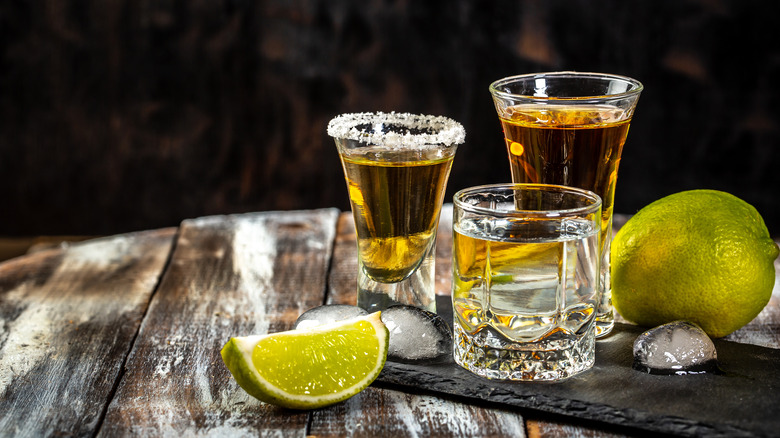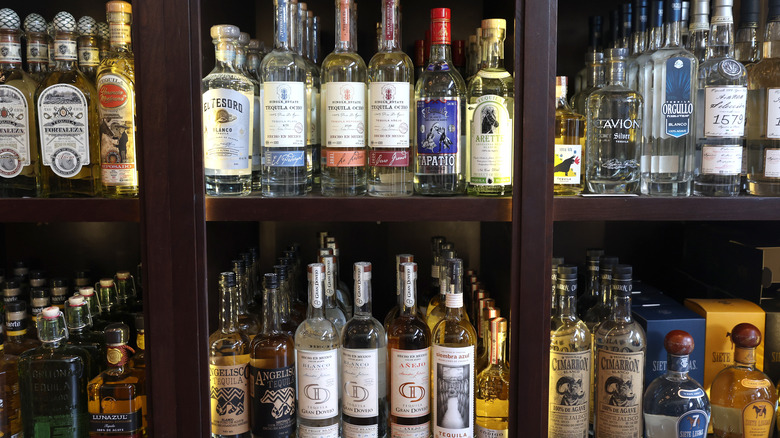The Label Messaging To Look Out For When Buying Tequila
Selecting the right bottle of tequila out of the massive number of options can be overwhelming, especially when tequila labeling can be confusing to the casual consumer. If you're like us, you just want to know what's good — or at the very least what tequila is going to work best in your margarita. You don't have the time, the money, or the liver capacity to taste test every brand of tequila on the market, but it can be tough to make the right choice by simply looking at the bottle. So unless you want to stand in the aisle frantically searching brands on your phone in the hopes of making a good guess, it helps to know what those terms on the tequila label actually mean.
If you're thinking about flavor, it's best to learn the types of tequila first. According to VinePair, the aging process is the main difference in tequila types, with blanco, reposado, and añejo climbing the ladder in both time spent in the barrel and complexity of flavors. Blanco, with its clean brightness, works well in cocktails, while añejos are often sippers, and reposado can fulfill both roles.
But what about quality? Once you know what style you want, how do you know which brands will give you the best experience? Well, there is another common message on tequila labels beyond the style that can give you a hint into how it was crafted.
Look for labels that say 100% de agave
Tequila is traditionally made from the agave plant, but as Difford's Guide points out, the spirit only has to be made from 51% agave in order to legally be called "tequila." Because the agave flavor is what sets tequila apart and imparts complexity, the best tequilas are almost always made entirely from agave syrup, with no other alcohol or sugars added during fermentation. Thankfully, Mexico regulates tequila to ensure quality, and Bon Appétit states that you can tell a tequila was made with only agave if it is labeled "100% de agave." Any tequila you find on the shelf without that label may contain other substances and additives that can alter the flavor.
Additives in tequila that are not 100% agave, which is also known as "mixto" tequila, can take a few forms. Some are for color or aroma, while syrups may also be added to lend different flavors to your tequila, per Bon Appétit. The sugars used to ferment the alcohol can also come from cane sugar or corn syrup, says Difford's Guide, which detracts from tequila's natural flavor and is why 100% agave is considered the superior choice.
Like wine grapes, the agave used to make tequila can be influenced by all kinds of factors from climate and geography and pure agave spirits give you the best chance to enjoy those unique characteristics. So, next time you want a bottle, "100% de agave" should be the first thing you check for.

